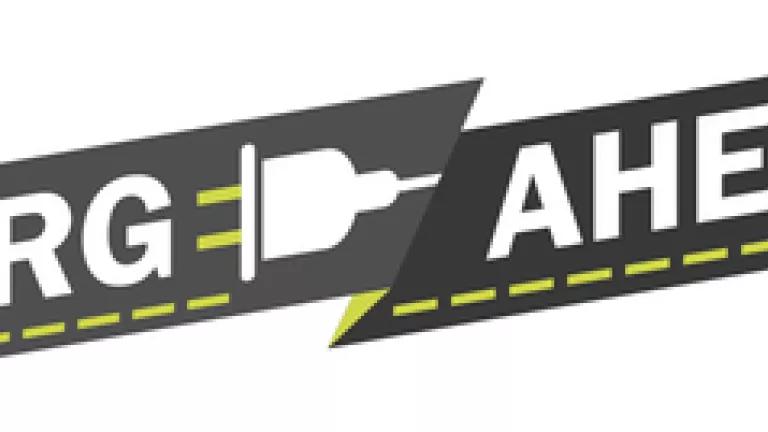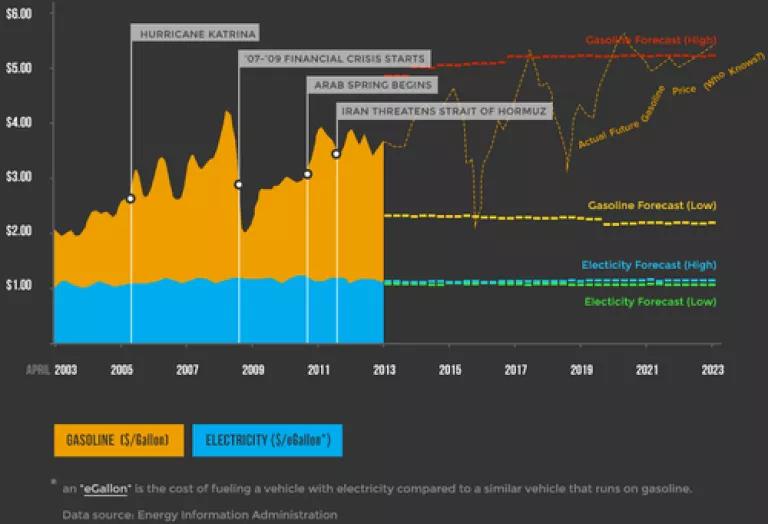
Governor Brown just signed the Charge Ahead California Initiative to put 1 million electric vehicles on the roads within 10 years and provide consumers with much needed relief at the pump. If you like the idea of driving on a cleaner fuel that's the cost equivalent of dollar-a-gallon gasoline, today is a good day.
Authored by Senator Kevin de León, the legislation is the first in the nation to promote the use of electric cars, trucks, and buses on California’s streets and ensure that communities that have suffered for too long from dangerous air pollution share in the benefits of a shift away from oil. The governor also signed SB 1204 (Lara, Pavley), which works with the Charge Ahead Bill to accelerate the development and deployment of cleaner medium and heavy-duty, on-road and off-road vehicles and equipment.
Electric cars are dismissed by skeptics as toys for the rich, but the reality is many models are surprisingly affordable, with post-incentive prices under $20,000. After accounting for the fact that driving on electricity is about four times cheaper than gasoline, that’s a pretty attractive alternative to cars that run on oil.
Many families would save a lot of money if they were to ditch their gasoline-powered cars, take advantage of attractive financing and leasing offers currently available for electric vehicles (EVs), and enjoy fuel-cost savings from Day 1. Among other things, the Charge Ahead legislation creates credit enhancement programs to help families that may not have the credit scores to qualify for such lease and finance deals, but could use money saved at the pump to make their car payments, and enjoy newer, safer, more reliable vehicles.
With four-in-ten Californians living dangerously close to pollution-choked highways, resulting in more premature deaths associated with traffic pollution than from traffic accidents, the transition to near-zero and zero emission vehicles is desperately needed.
Other Charge Ahead features
The bill also provides very generous incentives for lower- and moderate-income families to scrap their old, heavily polluting vehicles and get behind the wheel of new or used hybrid, plug-in electric car, or go “car-free” with vouchers for transit passes and car-sharing programs.
Mindful of the fact that going car-free is currently not a practical option in many areas of the state, the legislation creates pilot car-sharing programs in disadvantaged communities. Likewise, it aims to accelerate the installation of EV charging stations in apartment complexes and other multiple-unit residences in the state.
The measure also creates a long-term plan for purchase rebates that have played a central role in making California the single-largest EV market in the world, where nearly 100,000 electric cars are on the road today. Those rebates are currently worth up to $2,500, but will gradually be reduced as the market expands and vehicle costs come down.
The legislation directs the state’s Air Resources Board to limit eligibility for such rebates based on income in order to improve the cost-effectiveness of the program without undermining progress toward the million EV goal. As noted by the Los Angeles Times, the income-based provision has shifted the debate in the state by ensuring rebates are targeted at those whose vehicle purchase decisions are more likely be influenced by the incentive.
The Charge Ahead California Initiative (Senate Bill 1275) is sponsored by the Coalition for Clean Air, Communities for a Better Environment, Environment California, The Greenlining Institute, and the Natural Resources Defense Council.
Spreading access to a cleaner fuel that’s the cost equivalent of dollar-a-gallon gasoline

As shown in this figure, for the last decade, driving on electricity has been equivalent to dollar-a-gallon gasoline, and its forecasted to stay that way for the next decade. Governor Brown's signature concludes an eight-month-long legislative effort to adopt this groundbreaking initiative in California to get off the rollercoaster that is the world oil market.
The hope, of course, is that other states will follow suit and charge ahead towards cleaner fuel, cleaner air, and away from dirty fossil fuels. Drivers across America could get used to driving past the gas station, not worrying when oil prices spike following a hurricane in the Gulf of Mexico or violence in the Middle East, and enjoying the convenience of re-fueling at home.
